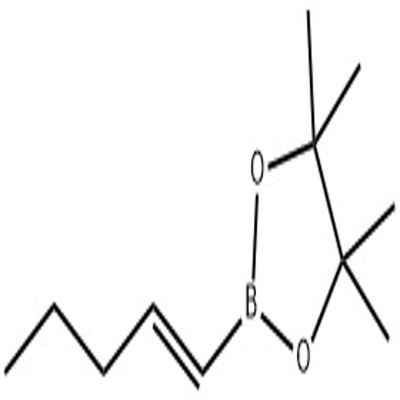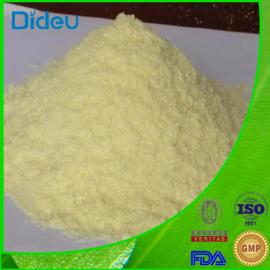-
Categories
-
Pharmaceutical Intermediates
-
Active Pharmaceutical Ingredients
-
Food Additives
- Industrial Coatings
- Agrochemicals
- Dyes and Pigments
- Surfactant
- Flavors and Fragrances
- Chemical Reagents
- Catalyst and Auxiliary
- Natural Products
- Inorganic Chemistry
-
Organic Chemistry
-
Biochemical Engineering
- Analytical Chemistry
- Cosmetic Ingredient
-
Pharmaceutical Intermediates
Promotion
ECHEMI Mall
Wholesale
Weekly Price
Exhibition
News
-
Trade Service
Text . . . In the first half
of 2020, the FDA approved 25 new drugs, including 19 new molecular entities and 6 new biologics. From the number of approvals, although the first half of the new crown epidemic is global epidemic, but the number of new drugs approved by the FDA compared to the same period last year, the increase is not small.. In terms of disease, a total of 8 oncology drugs, 2 eye drugs and 2 migraines were approved in the first half of 2020. From a corporate perspective, Novartis and Lilly each approved two new drugs in the first half of 2020, including Lilly including one radiology diagnostic diagnostic reagents, BMS has one new drug approved, And AstraZeneca/Mercado has one new drug approved.
a brief introduction to the above medicines:
. On January 9, the FDA approved Blueprint Medicines' Ayvakit (avapritinib) for the treatment of patients with non-surgical or metastatic adult gastrointestinal interstitial (GIST) patients carrying platelet-derived growth factor receptor alpha (PDGFRA) gene 18, including the most common type of 18 exosome mutation.
Avapritinib is an oral, highly active, highly selective KIT and PDGFR alpha inhibitor. A variety of diseases with KIT and PDGFR alpha mutations (including KIT D816V, PDGFR alpha D842V, and KIT exon 17 mutations) have a poor response to standard therapies and lack of effective treatment, and avapritinib has shown good preclinical activity for the above mutations.
GIST is a type of tumor that originates in the inter-intestinal lobe tissue, accounting for the majority of inter-intestinal leaf tumors. GIST can occur anywhere in the digestive tract, most commonly in the stomach and small intestine, and the molecular mechanism is caused by a mutation in the activation of the tyrosine kinase receptor protein gene KIT (CD117) or platelet-derived growth factor receptor alpha (PDGFR alpha). About 6% of newly diagnosed patients carry PDGFA exon 18 mutations.
. On January 21st the FDA approved the listing of Horizon Therapeutics' Teprotumumab-trbw for the treatment of thyroid eye disease. This is the first FDA-approved thyroid eye disease drug.
TED is an autoimmune disease that often occurs in patients with metamorphosis, and is usually characterized by eye protrusion, double vision, blurred vision and facial deformity. The disease is mainly caused by the patient's autoantibodies activating the insulin-like growth factor 1 receptor (IGF-1R) in the eye frame.
Teprotumumab is a monoclonal antibody that targets IGF-1R, and Phase III OPTIC clinical studies have shown that patients treated with Teprotumumb significantly reduced eye protrusion (82.9% vs 9.5%) compared to placebos, reaching the primary endpoint. In addition, patients treated with the drug have effects in reducing complexvision and improving quality of life, reaching secondary endpoints. In terms of safety, most adverse reactions occurred in the Teprotumumab treatment group to be mild to moderate and can be controlled.
. On January 24, the FDA approved Epizyme's Tazverik (tazemetostat) for the treatment of metastatic/localized epithelial sarcoma adults who cannot be completely removed, as well as pediatric patients over the age of 16.
epithelial sarcoma is a rare soft tissue sarcoma, which is common in young adults between the ages of 20 and 40. Currently, the main treatment options are surgical excision, chemotherapy or radiotherapy. Tazemetostat is the first FDA-approved EZH2 inhibitor and the first FDA-approved epithelial sarcoma treatment.
a Phase II clinical study showed that the ORR was 15% in patients treated with Tazemetostat, of which CR was 1.6% and PR was 13%. In addition, 67% of all patients who had the response had a continuous response time of 6 months or more.
safety, 37% of patients in the Tazemetostat treatment group had serious adverse reactions. The serious adverse reactions in the patients were mainly bleeding, chest fluid, skin infection, dyspnea, pain and respiratory distress. One patient (2%) permanently discontinued the drug due to adverse reactions to mood changes.
. On February 12, the FDA approved the launch of The Braintree Laboratory's Pizensy (lactitol) for the treatment of adult patients with chronic isosome constipation (CIC).
CIC is a disease characterized by difficulty defecating, frequent bowel feces and abdominal bloating, which affects about 35 million people in the United States. At present, the clinical treatment mainly with drugs, including laxatives, although this drug can alleviate the symptoms of patients to a certain extent, but also bring drug dependence.
Pizensy is an oral lactose alcohol treatment that is a permeable laxative that promotes water into the intestines and thus the general function. A randomized, double-blind, placebo-controlled multicenter clinical trial showed that patients in the Pizensy treatment group reached the primary endpoint by 25 percent and 13 percent, respectively, with three times of total spontaneous defecation (CSBMs) or at least one increase over the baseline in a week compared to the placebo group.
safety, the common adverse reactions were upper respiratory tract infections, bloating, diarrhea, elevated blood creatinine phosphatase, bloating and elevated blood pressure.
. On February 21, the FDA approved Esperion's Nexletol tablet, an assisted diet and maximum tolerable dose of statin, for the treatment of patients with hefycopic hypercholesterolemia (HeFH) in adults, or for patients with atherosclerosis cardiovascular disease (ASCVD) who need to further reduce LDL-C. Nexletol is the first oral nonstatal LDL-C drug approved daily since 2002.
bempedoic acid is a synthetic dioxic derivative that is an ATP-citric acid lysise (ACL) inhibitor belonging to first in class to reduce LDL-C by inhibiting the biosynthesis of cholesterol in the liver and lowering the density lipoprotein receptor (LDL-R).
FDA approval of Nexletol is based primarily on a series of key global Phase III projects in more than 3,000 patients. A clinical trial aggregate analysis of four of these patients combined with more than 2600 patients showed that bempedoic acid combined with moderate or maximum tolerable doses of statins could further reduce placebo-corrected LDL-C by 18%, bempedoic acid combined with low doses of statins or not using statins, and could further reduce the placebo-corrected LDL-C by 21% to 28%.
in Phase III clinical studies, bempedoic acid was well tolerated, the incidence of common adverse events was similar to that of the placebo group, and the most common (and higher than the placebo group) adverse events included upper respiratory tract infections, muscle spasms, hyperuric acidemia, back pain, abdominal pain or mild discomfort, bronchitis, anemia, elevated liver enzymes, etc. In terms of the severity of adverse events, most of the bempedoic acid group were light to moderate, similar to the placebo group.
. On February 21, the FDA approved the listing of Eptinezumab-jjmr of Lingbei Pharmaceuticals for the prevention of migraines in adults. This is the first FDA-approved intravenous drug to prevent migraines.
Vyepti is lingbei's $1.95 billion acquisition of Calcitonin Gene-Related Peptide (CGRP), a key neuropeptide associated with migraines.
Vyepti's efficacy and safety were confirmed in two randomized, double-blind, placebo-controlled clinical studies. Among them, the PROMISE-1 study focused on patients with seizure migraines, and the PROMISE-2 study focused on patients with chronic migraines. The results showed that Vyepti reached the primary endpoint in both studies to reduce the average number of migraine days per month (MMD) for 1-3 months. In addition, a safety study involving 2,076 patients showed that Vyepti's most common adverse reactions were nasopharyngitis and hypersensitivity.
. On February 27, the FDA approved Acacia Pharma's Barhemsys (Amisulpride) as a single drug or combination of other therapies to treat and prevent postoperative nausea and vomiting (PONV). This is the first approved postoperative nausea and vomiting remedy for patients with previous prevention failures.
PONV is a common complication of surgery, which occurs in about 30% of surgical patients and 80% of high-risk patients. PONV is associated with the use of anaesthetic gases or analgesics, which are more common after surgery in gynecology, abdomen, breast, eyes and ears, especially after surgery that lasts an hour or more. Some patient surveys show that PONV is listed as one of the most serious symptoms of surgical complications, even more than pain.
Barhemsys is a selective dopamine D2 and D3 receptor antagonist. The efficacy and safety of Barhemsys have been confirmed in 4 Phase III clinical studies. Among other than one, a clinical study involving patients with failed standard anti-spitting therapy showed that the Barhemsys treatment group was significantly better than the placebo group (42% vs 29%). Another clinical study involving patients at high risk of PONV showed that Barhemsys combined with another anti-spitting drug to have a significant therapeutic effect due to the effect of the placebo combination of the anti-spitting drug (58% vs 47%).
. On February 27, the FDA approved Biohaven's Nurtec oral disintegrating tablets for use in the treatment of acute migraines in adults.
Rimegepant is an oral disintegrating tablet (ODT) that can quickly disintegrate in the mouth without water (or with only a small amount of water present), enterthe into the digestive tract with swallowing action, and absorb no mucosa in the mouth. Compared with ordinary preparations, ODT has the advantages of convenient consumption, fast absorption, high bioavailability, and low irritation to the digestive tract mucosa, which has been widely concerned.
FDA approval of rimegepant is based on the results of a key Phase III clinical trial (Study 303) and a long-term open label safety study (Study 201).
in the Study 303 study, there was a statistically significant statistical difference in the common primary endpoint of pain-free and most annoying symptoms (MBS) 2 hours after taking rimegepant compared to placebo, and rimegepant also showed statistical advantages in pain relief (reducing moderate or severe pain to painless or mild pain) and returning to normal function within 1 hour. For most patients, the benefits of pain freedom, pain relief, return to normal function, and getting rid of MBS lasted 48 hours. Importantly, these benefits can be seen with just 1 dose of rimegepant. 86% of patients taking rimegepant do not need first aid drugs (e.g. NSAIDS, acetaminophen) within 24 hours of administration.
Study 201 study assessed the safety and tolerance of long-term multiple use of rimegepant. The study assessed 1,798 patients with migraine attacks who took 75 mg of rimegepant as needed and a maximum of 1 dose per day. The study included 1,131 patients who were exposed to rimeepant for at least six months and 863 patients who were exposed to at least one year, all of which had an average of at least two migraine attacks per month, but the study did not determine the safety of patients with 15 migraine attacks in 30 days.
in clinical studies, less than 1% of the subjects experienced hypersensitivity reactions to breathing difficulties and severe rashes, including severe hypersensitivity reactions with delayed after administration.
. On March 2, the FDA approved Sanofi's CD38 monoantine Sarcisa (isatuximab-irfc) for use in combination with pomadomine and dexamethasone therapy in adult patients with recurrent refractive polymyoma (MM) who have previously received at least two lines of therapy, including indonate amine and a protease body.
isatuximab promotes the procedural death of tumor cells by targeting specific epitopes of CD38 receptors on multiple myeloma cells, and is the second FDA-approved CD38 antibody drug in the world, following Johnson and Johnson Darzalex (Daretoumono). In 2019, Darzalex sales reached $2,998 million.
this approval is based on the ICARIA-MM clinical trial, the results show that the Sarcica combined pomadomine plus dexamethasone treatment group compared to Pomadomine and dexamethasone treatment group patients reduced the risk of disease progression and death by 40% (HR 0.596), the median progression of both The survival (PFS) was 11.53 and 6.47 months, respectively, while the overall remission rate of patients in the Sarcica combined pomadomine-dexamethasone treatment group was significantly higher than that of pomadomine and dexamethasone treatment groups (60.4% vs. 35.3%) in terms of
safety, the most common adverse reactions in the Sarclisa combination group were neutrophil reduction (96%), infusion-related reactions (39%), pneumonia (31%), upper respiratory tract infections (57%) and diarrhea (26%), and more than 5% of patients had serious adverse reactions, including pneumonia (25.3%) and febrile neutrophils.







